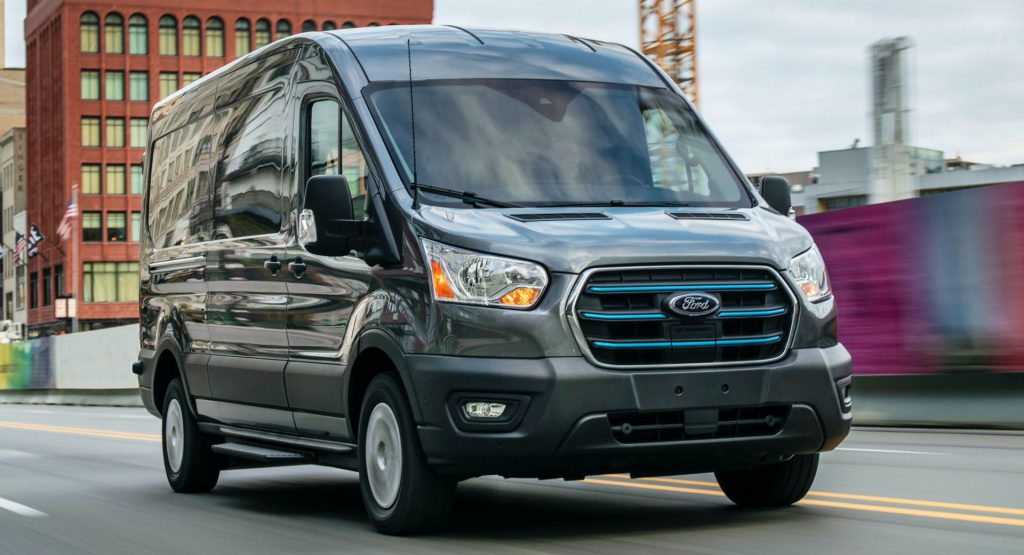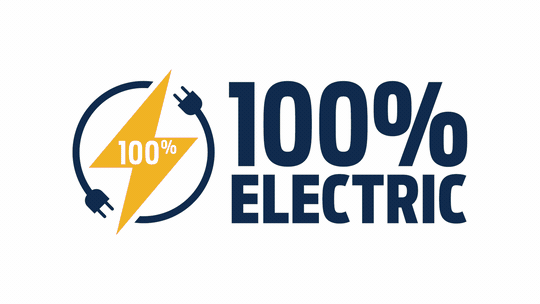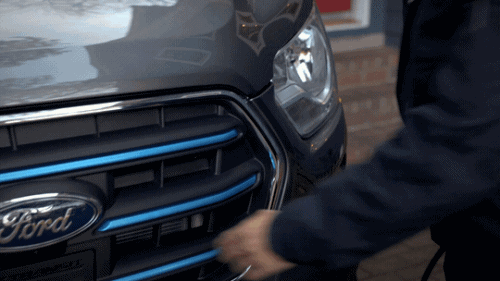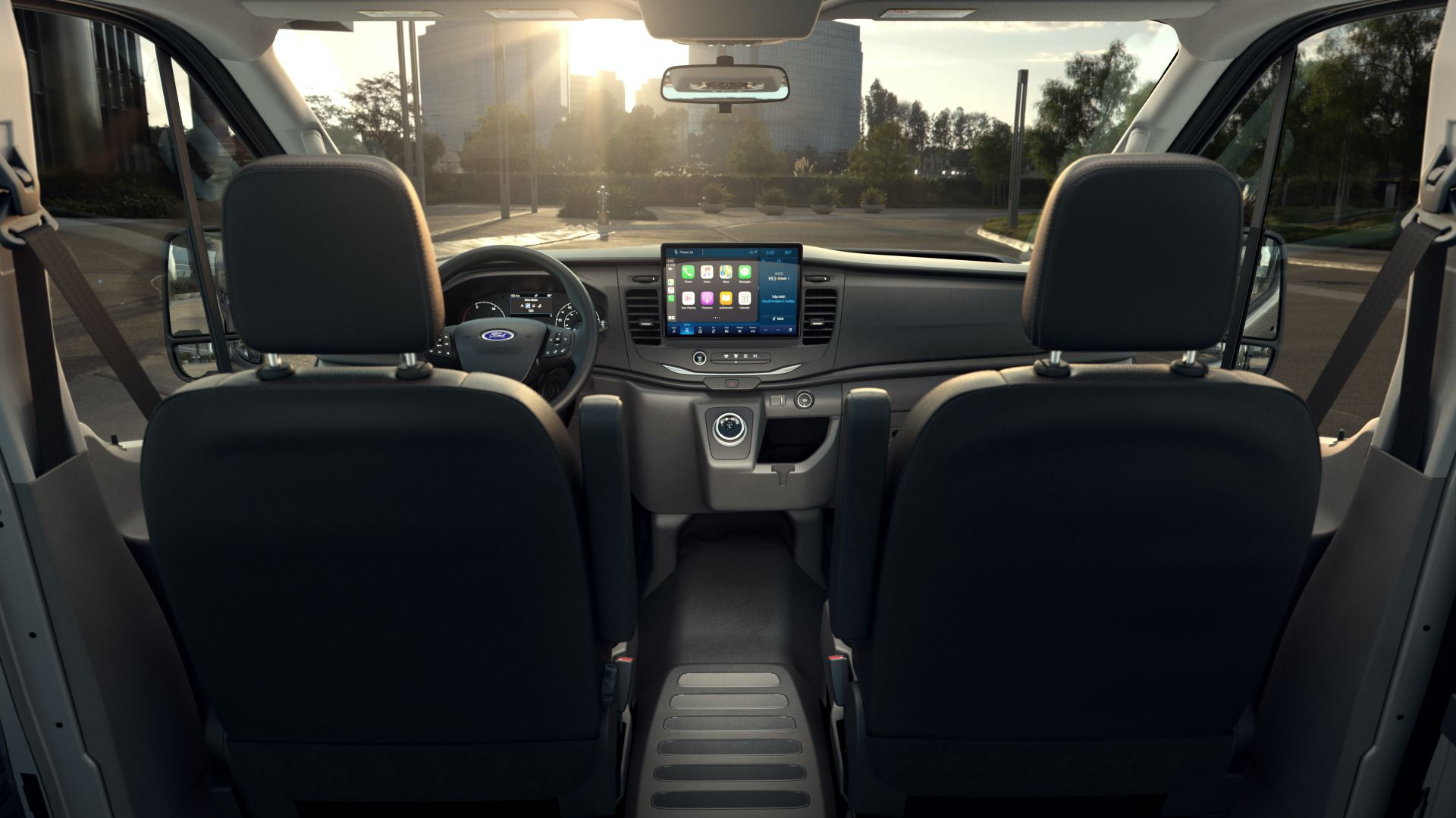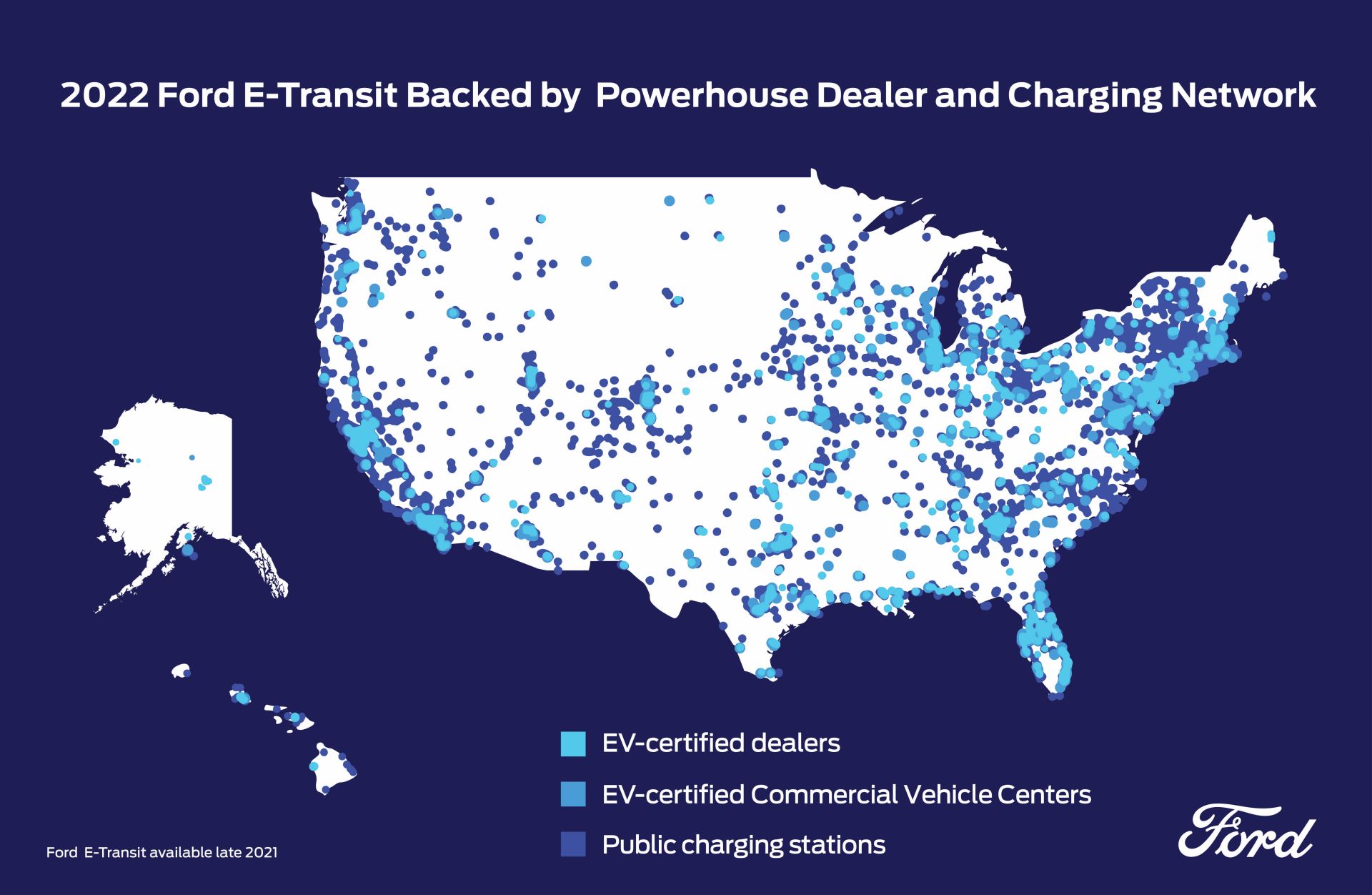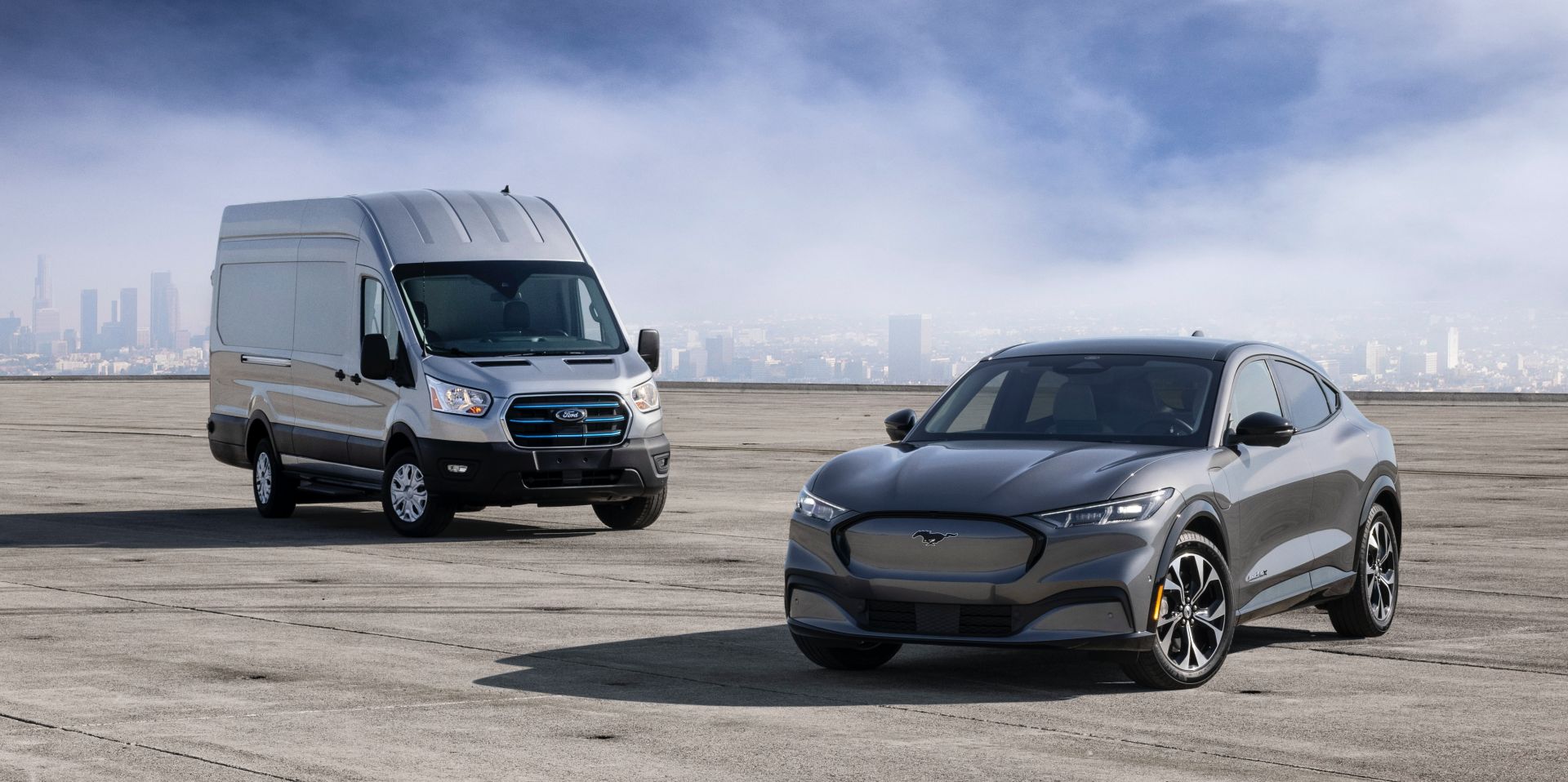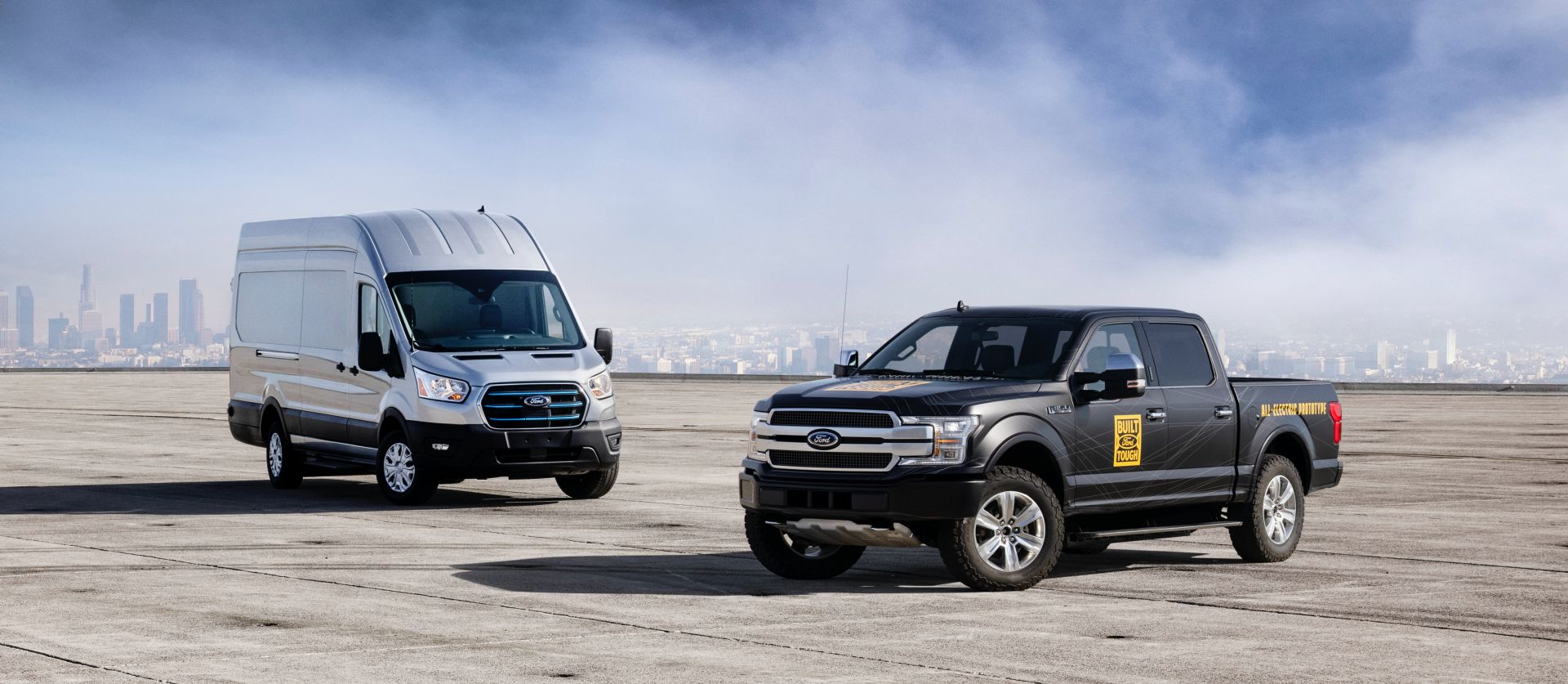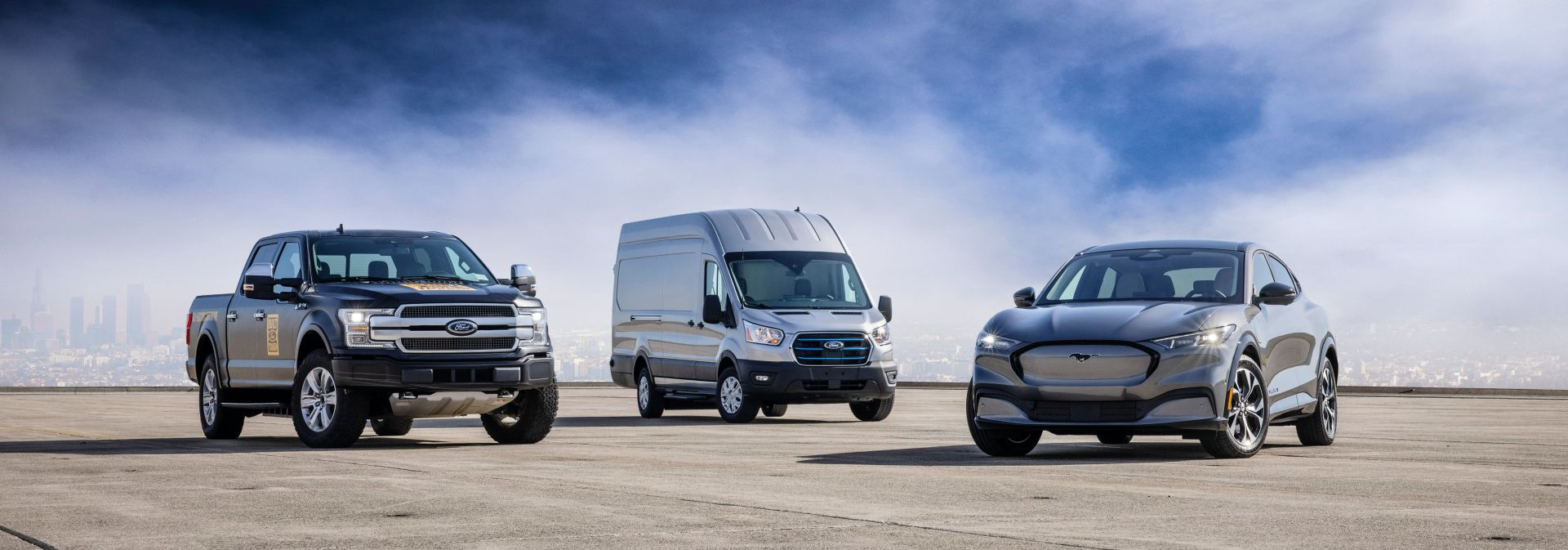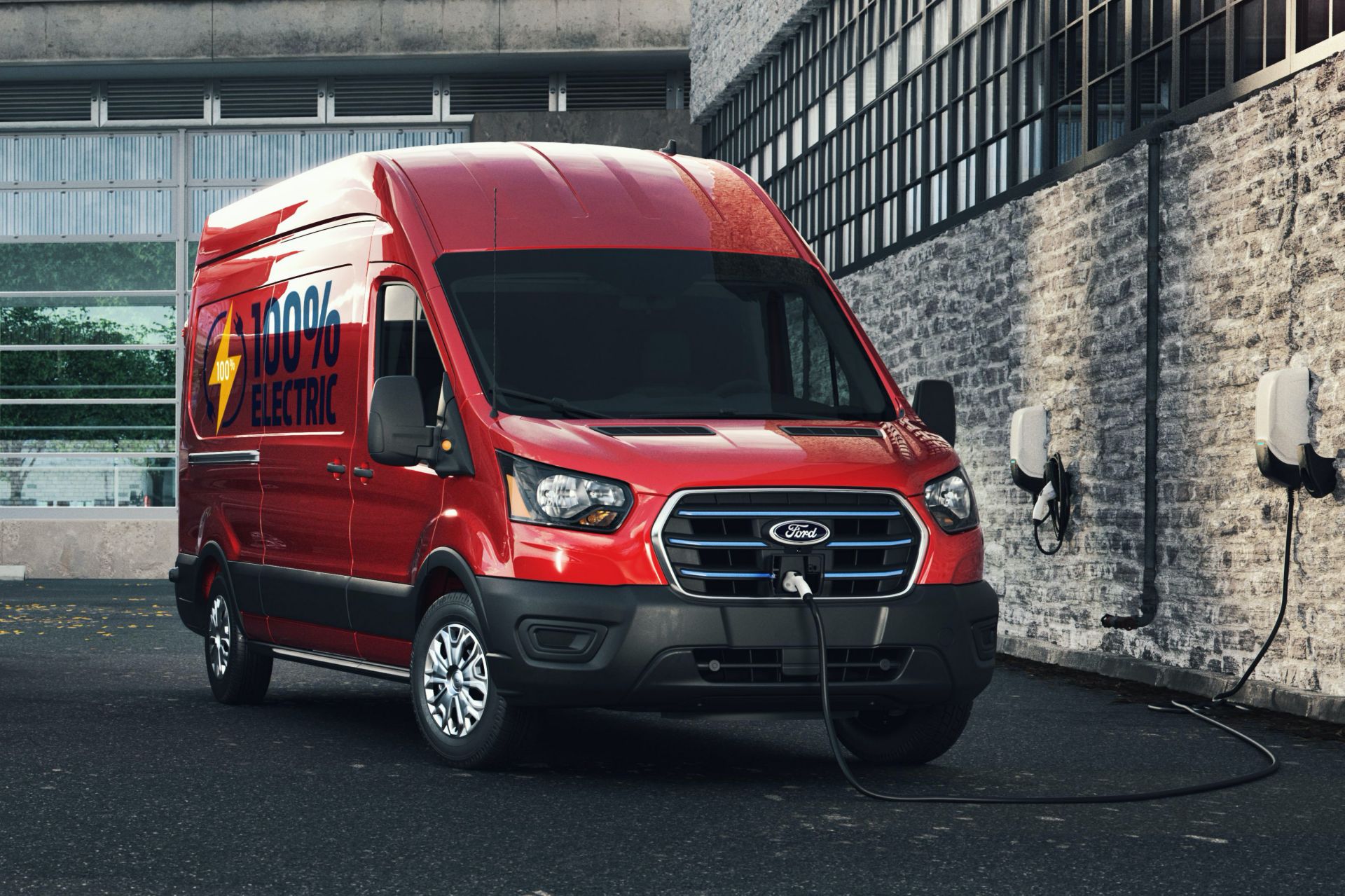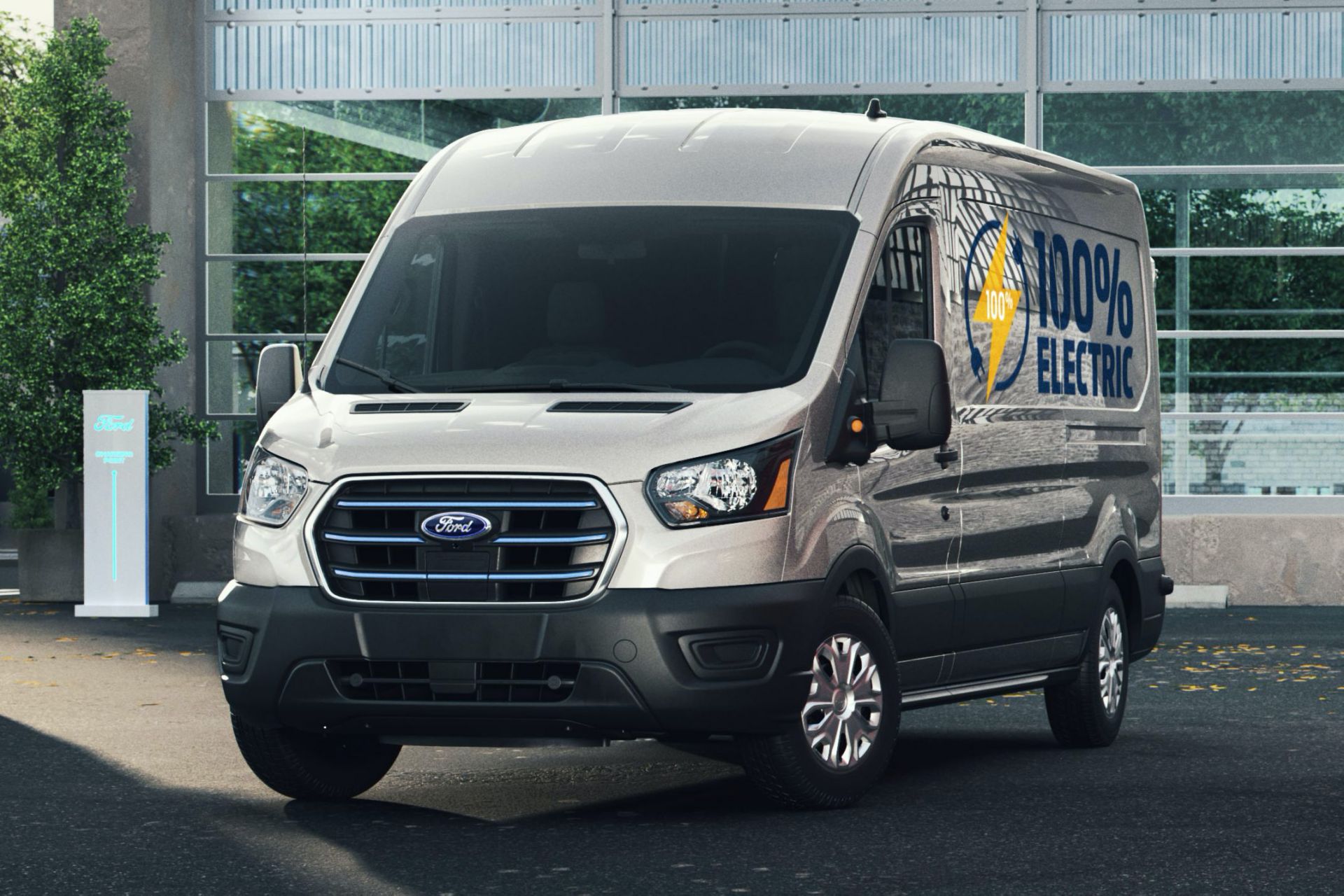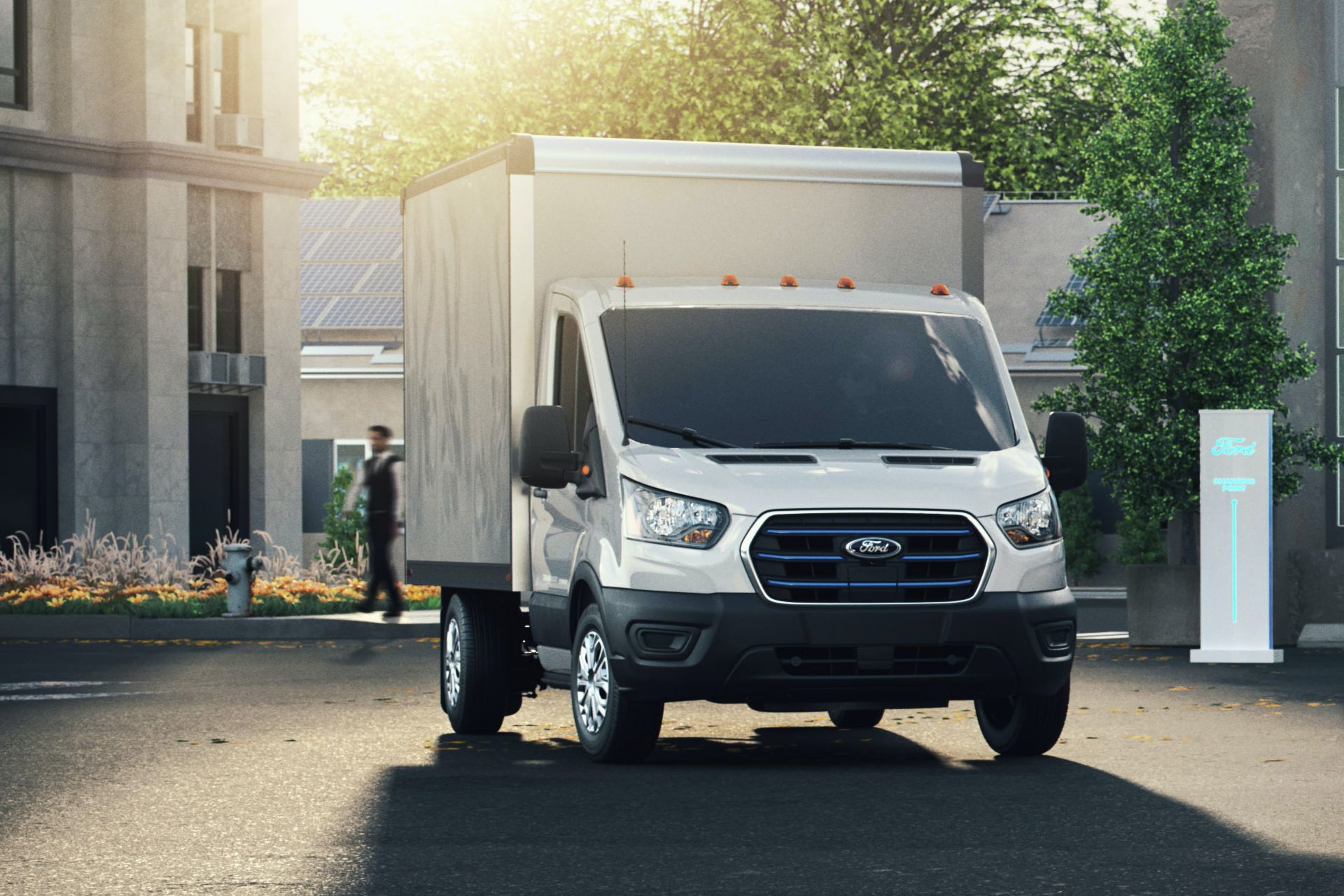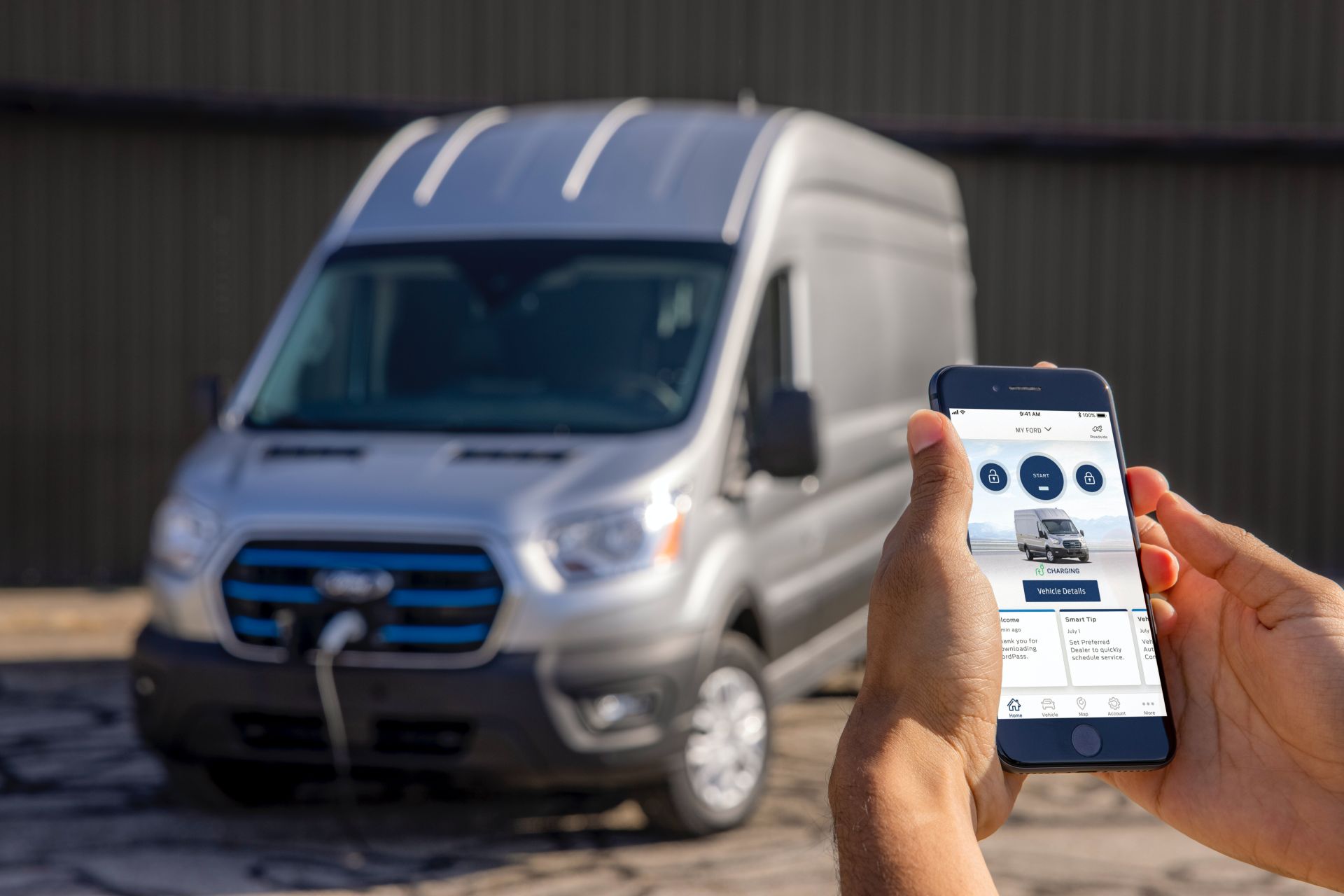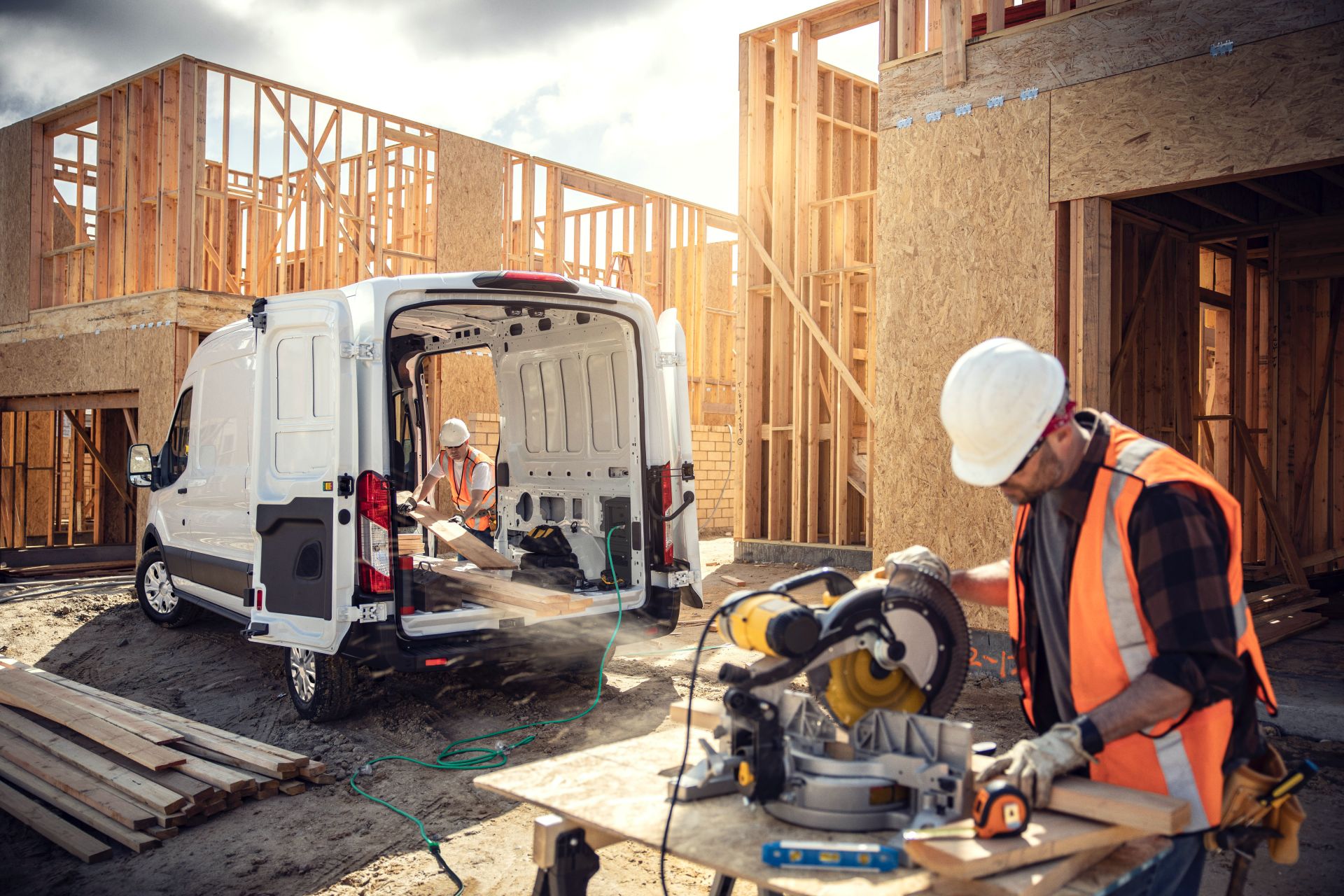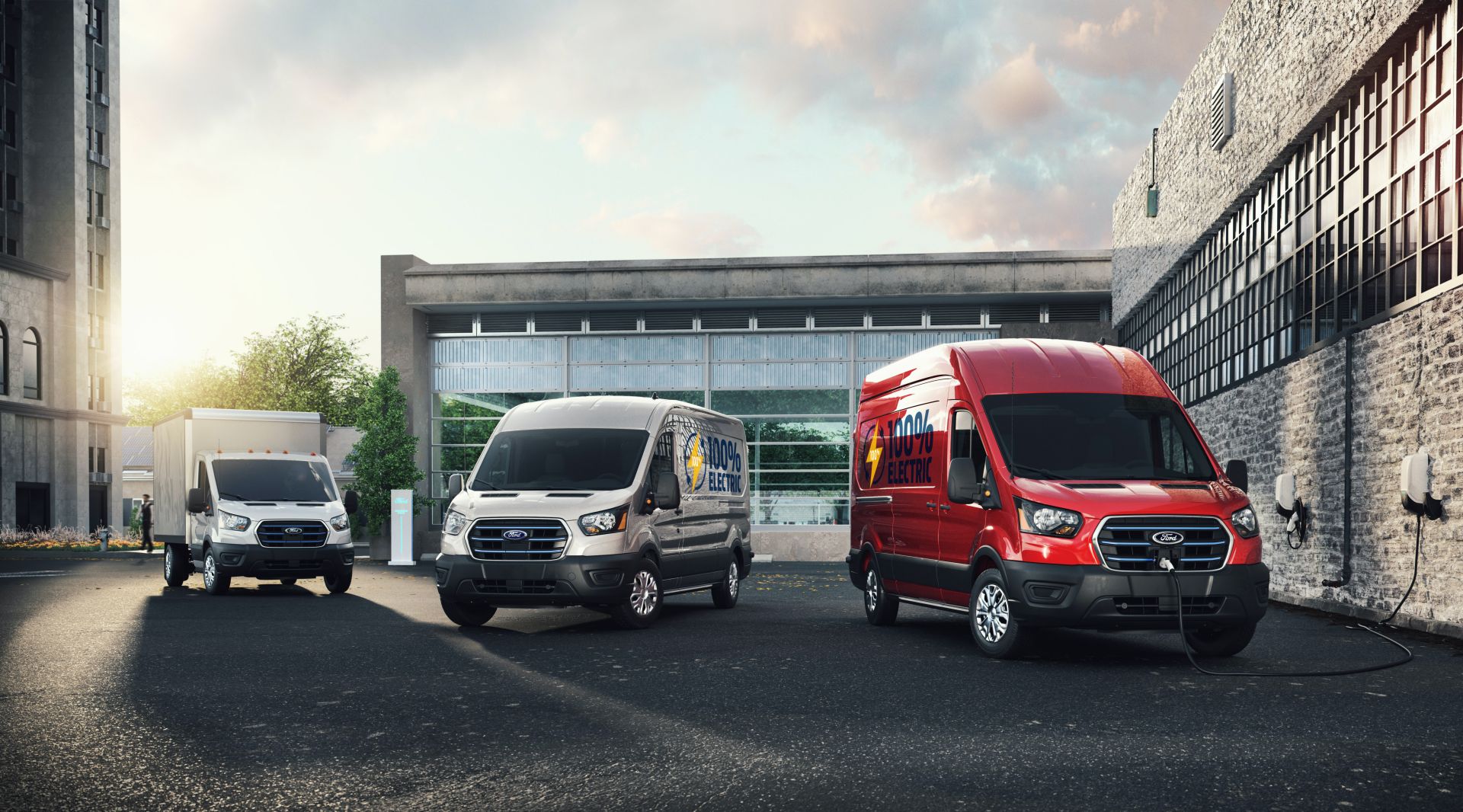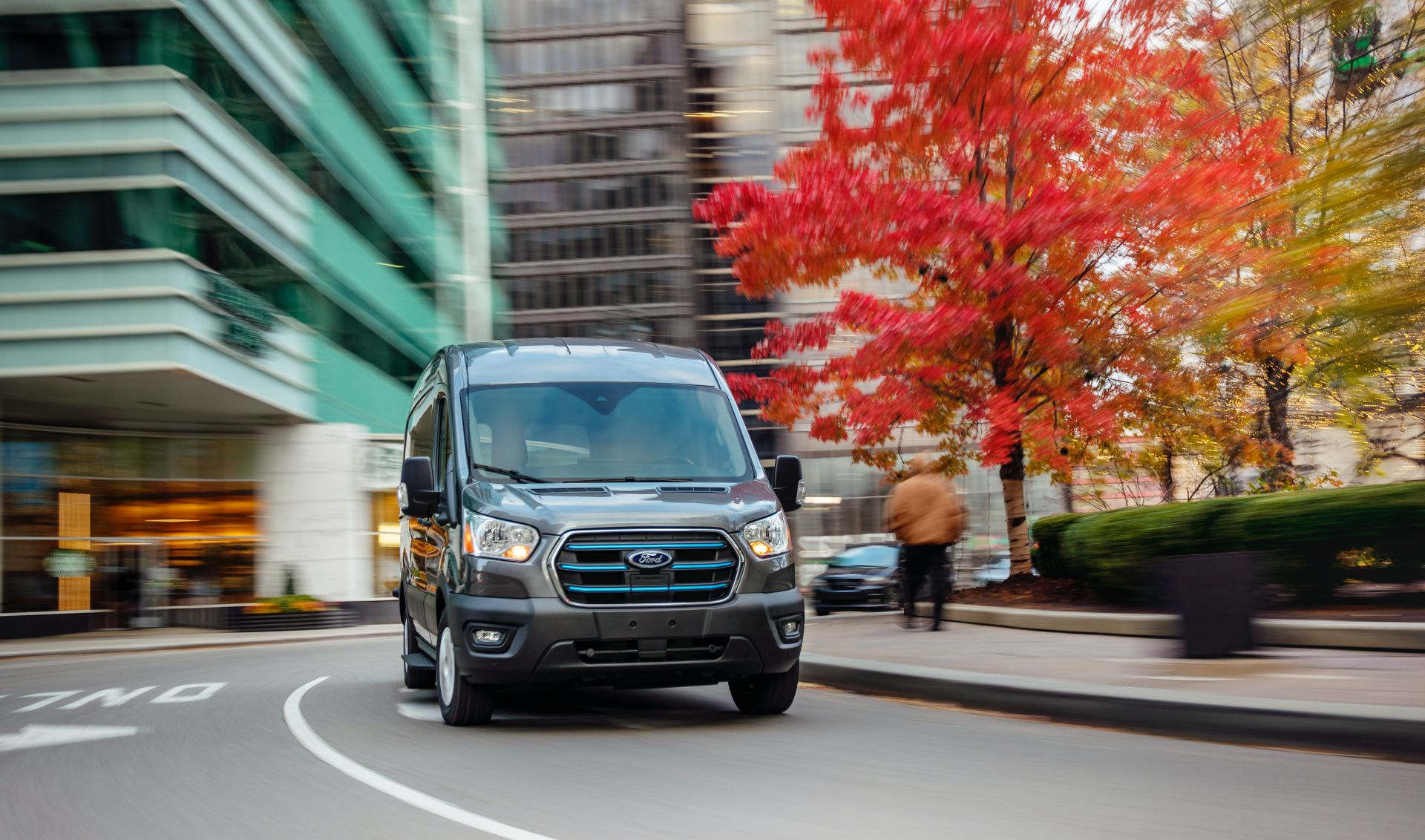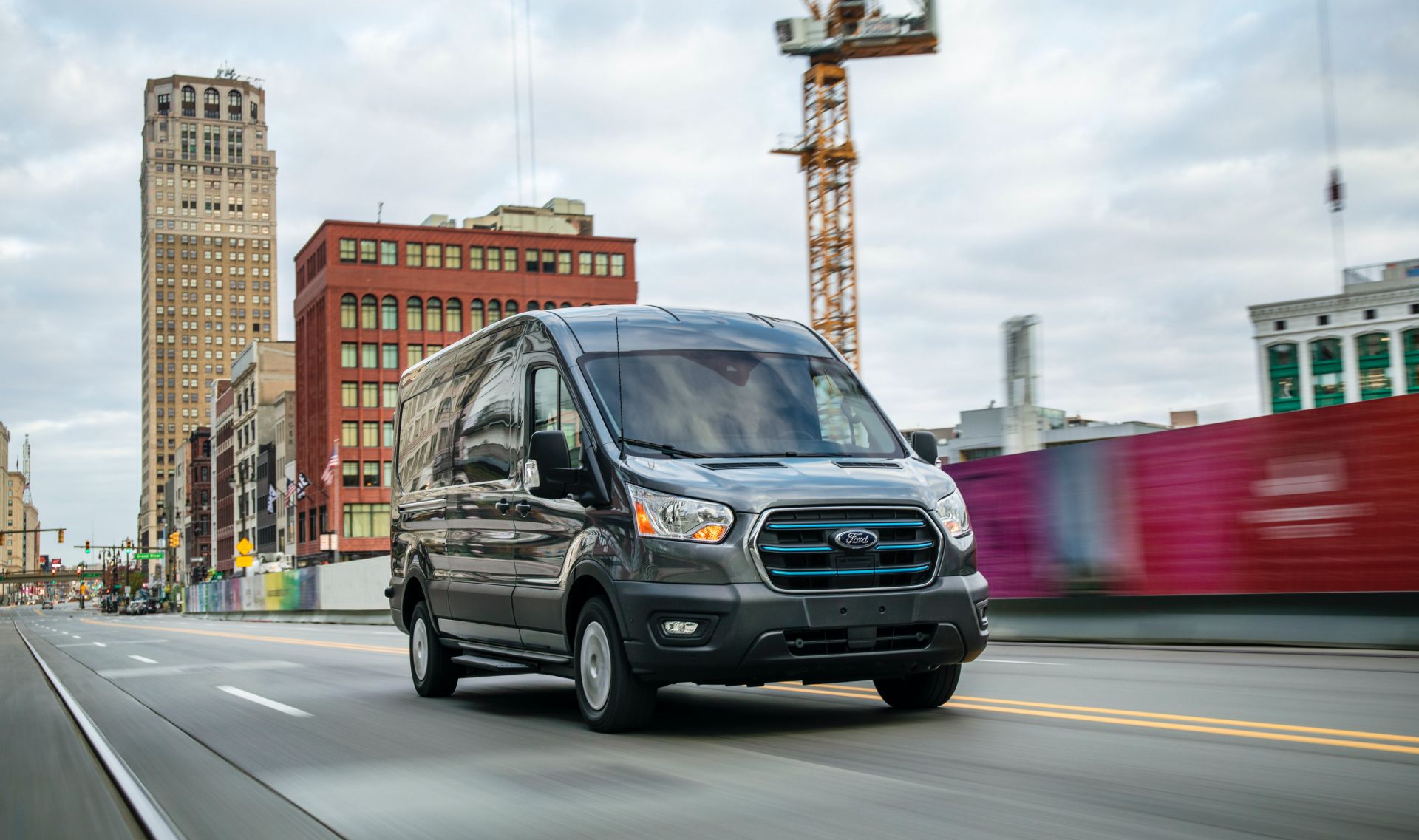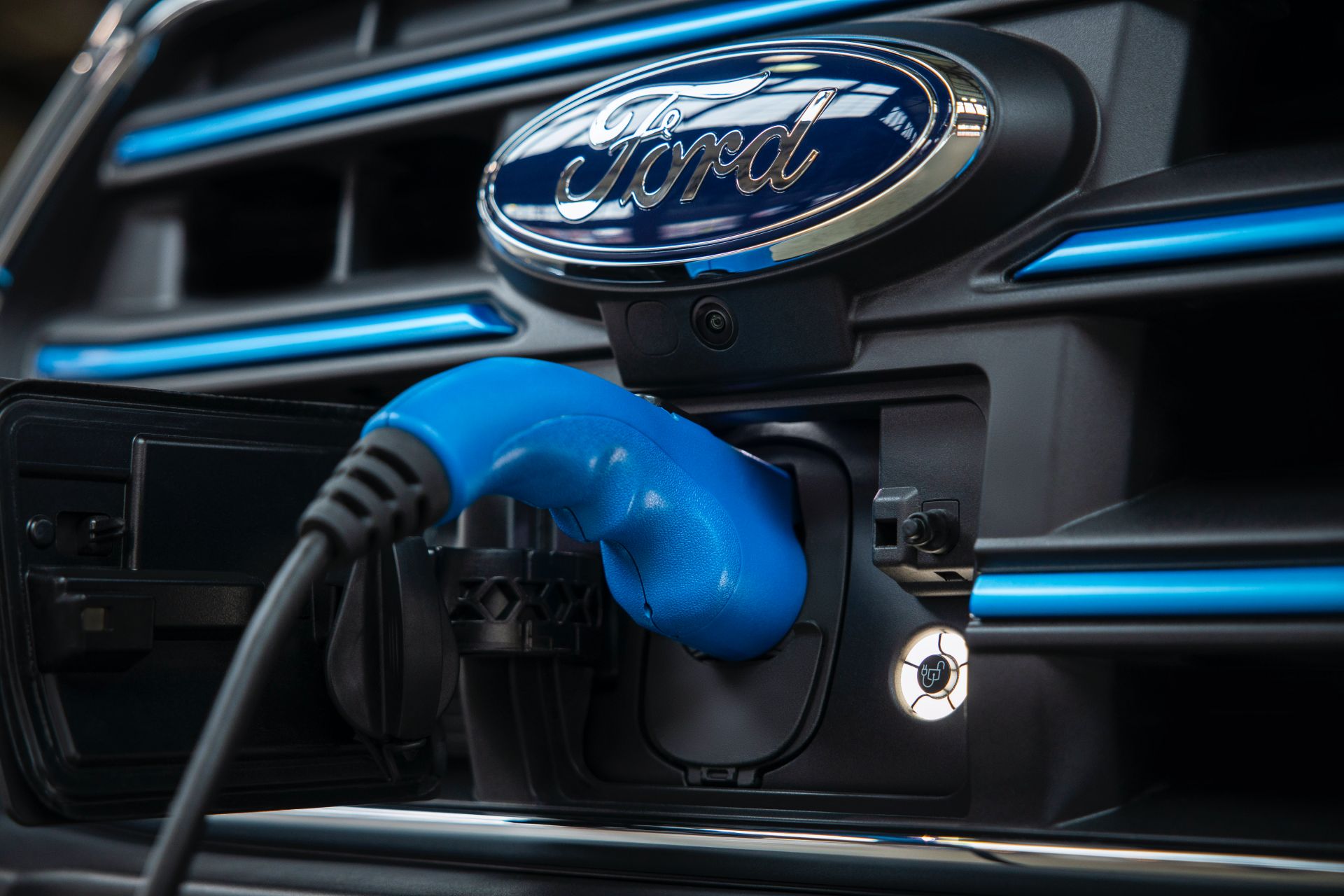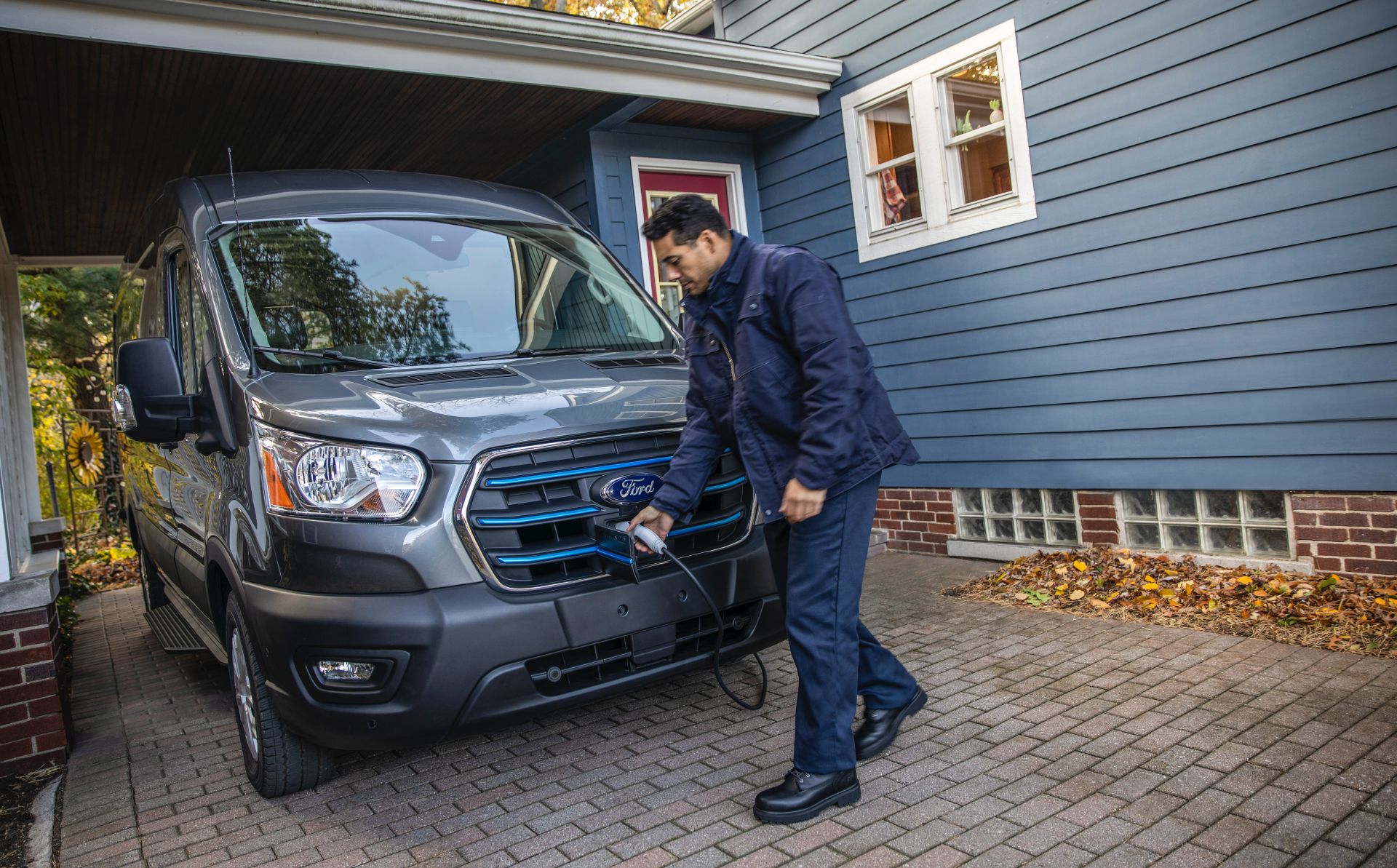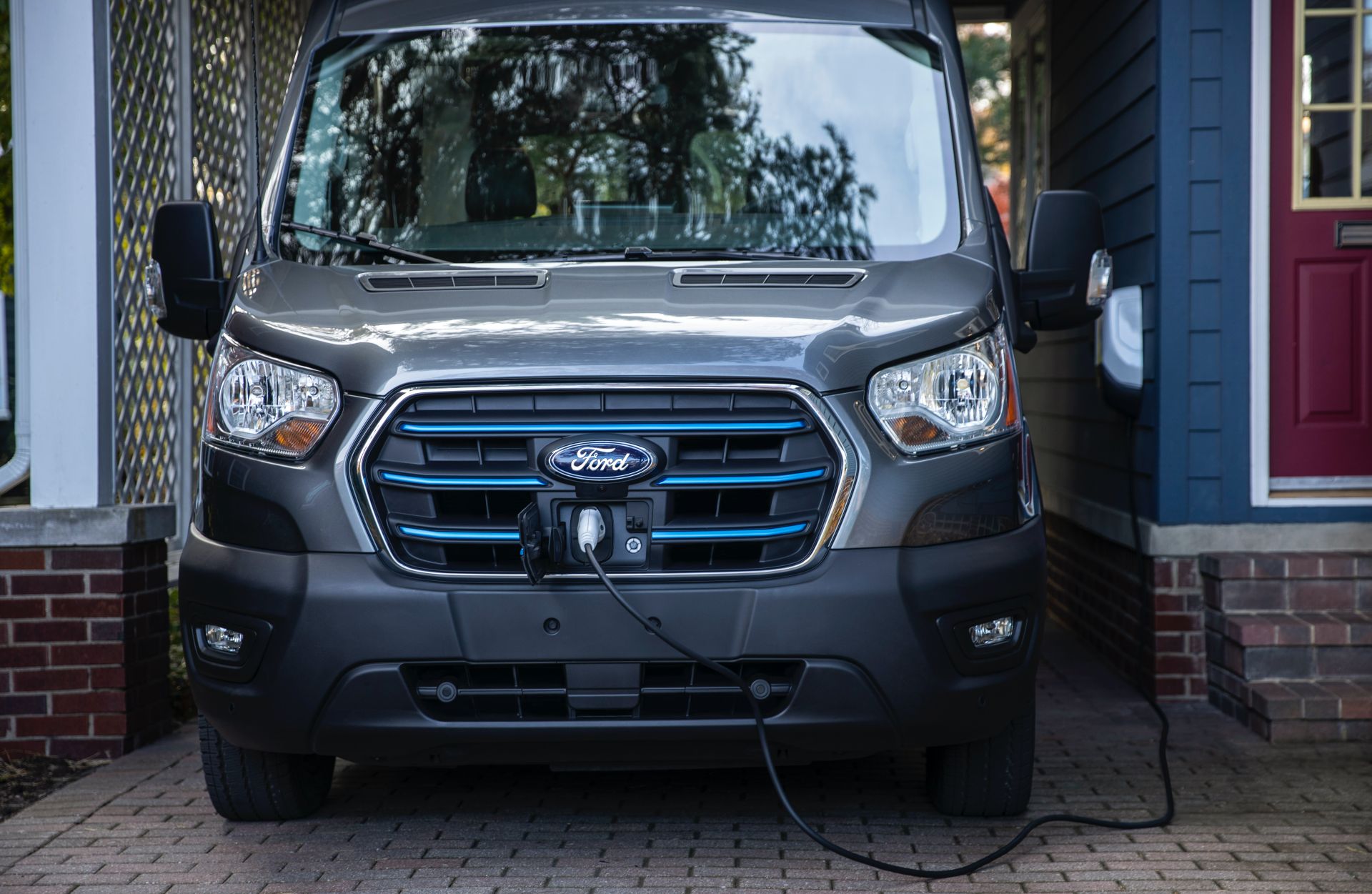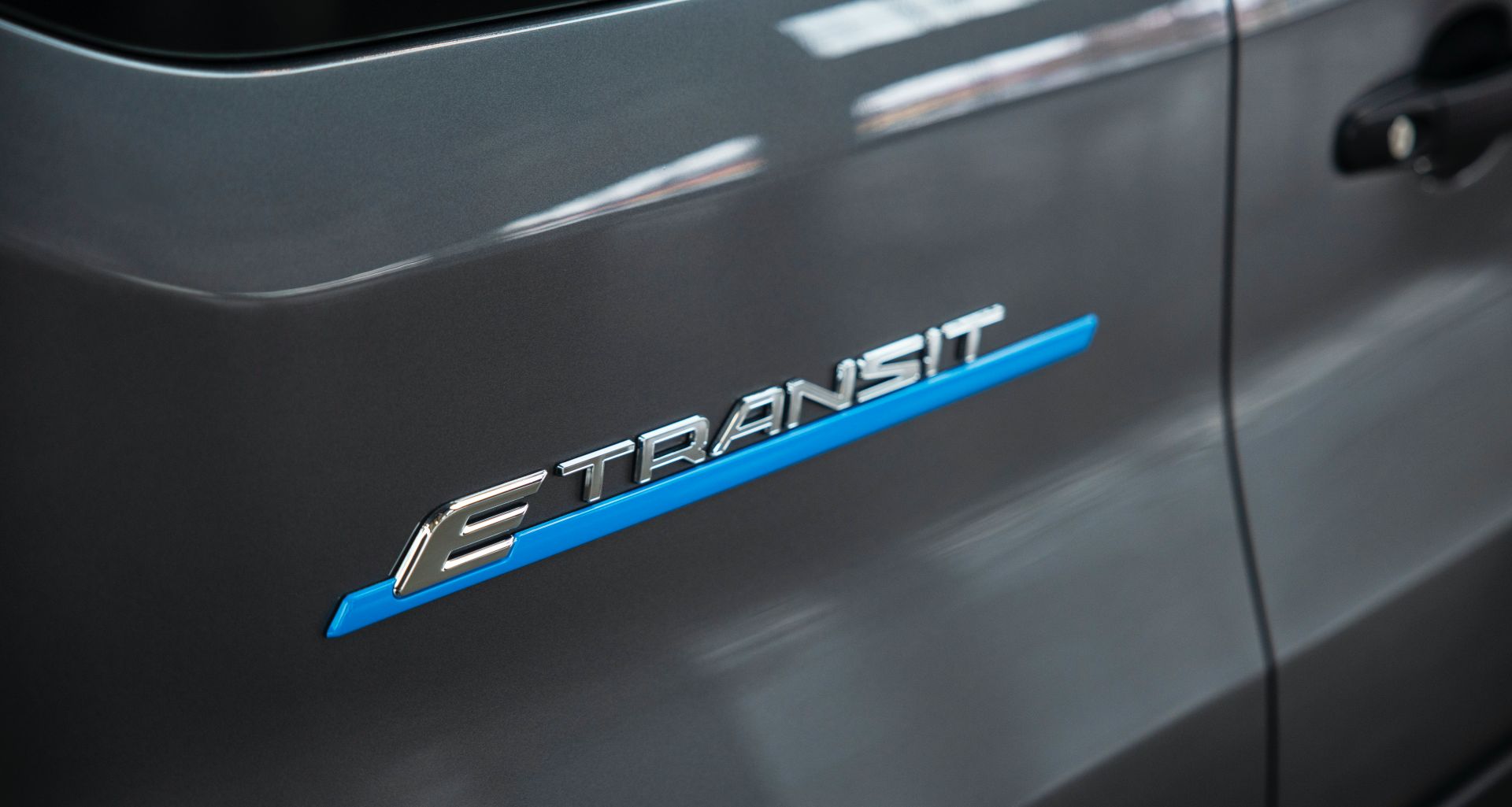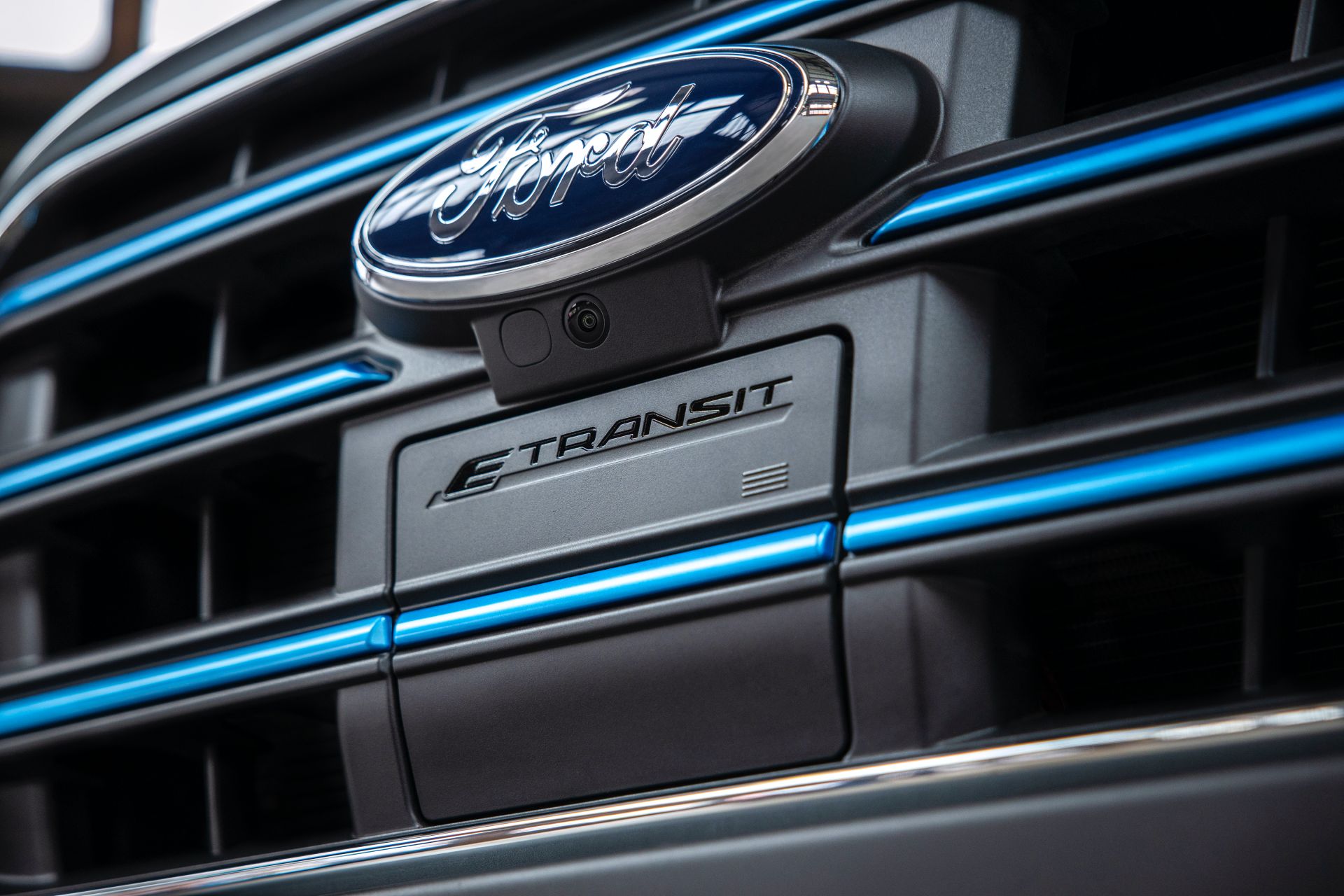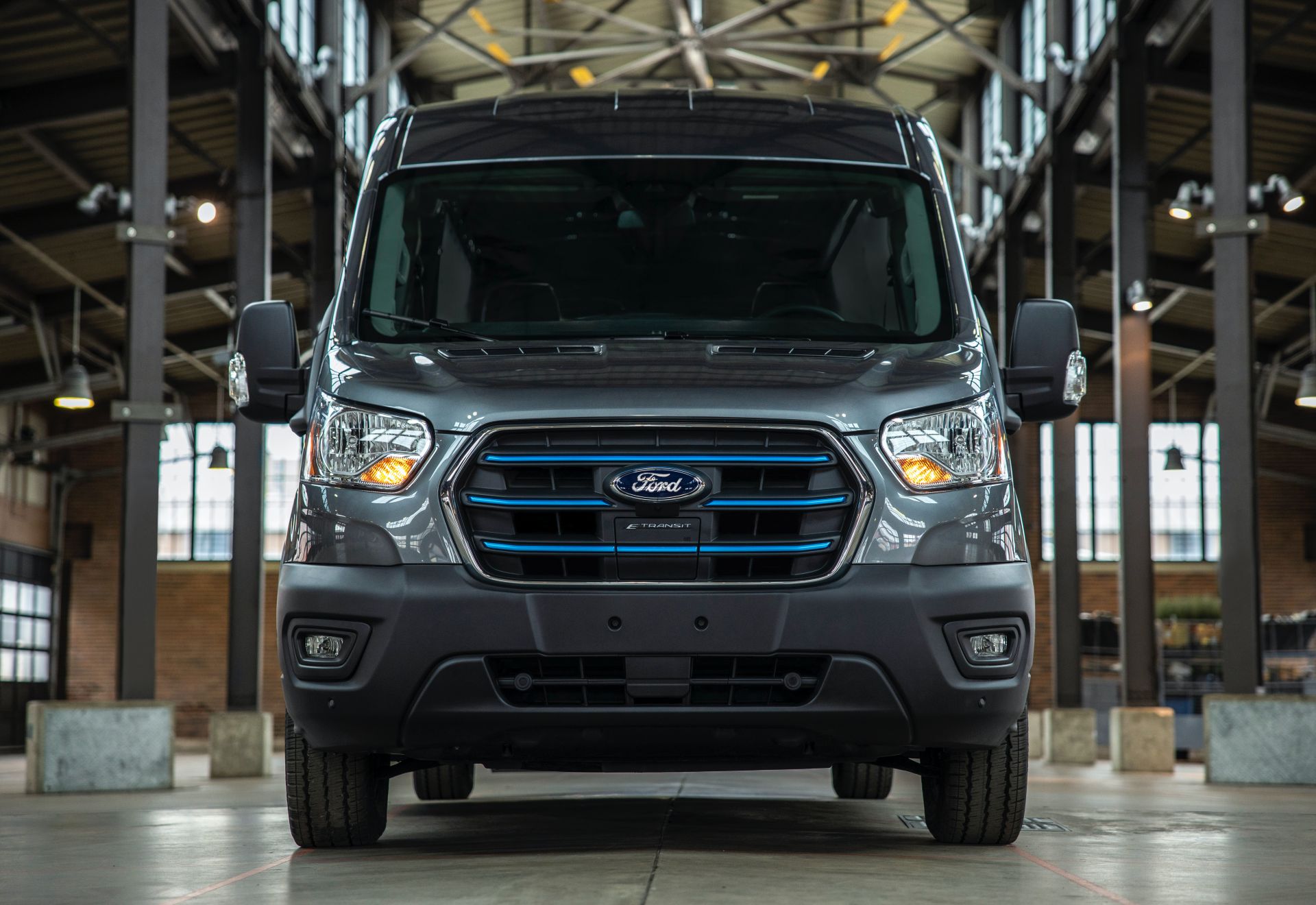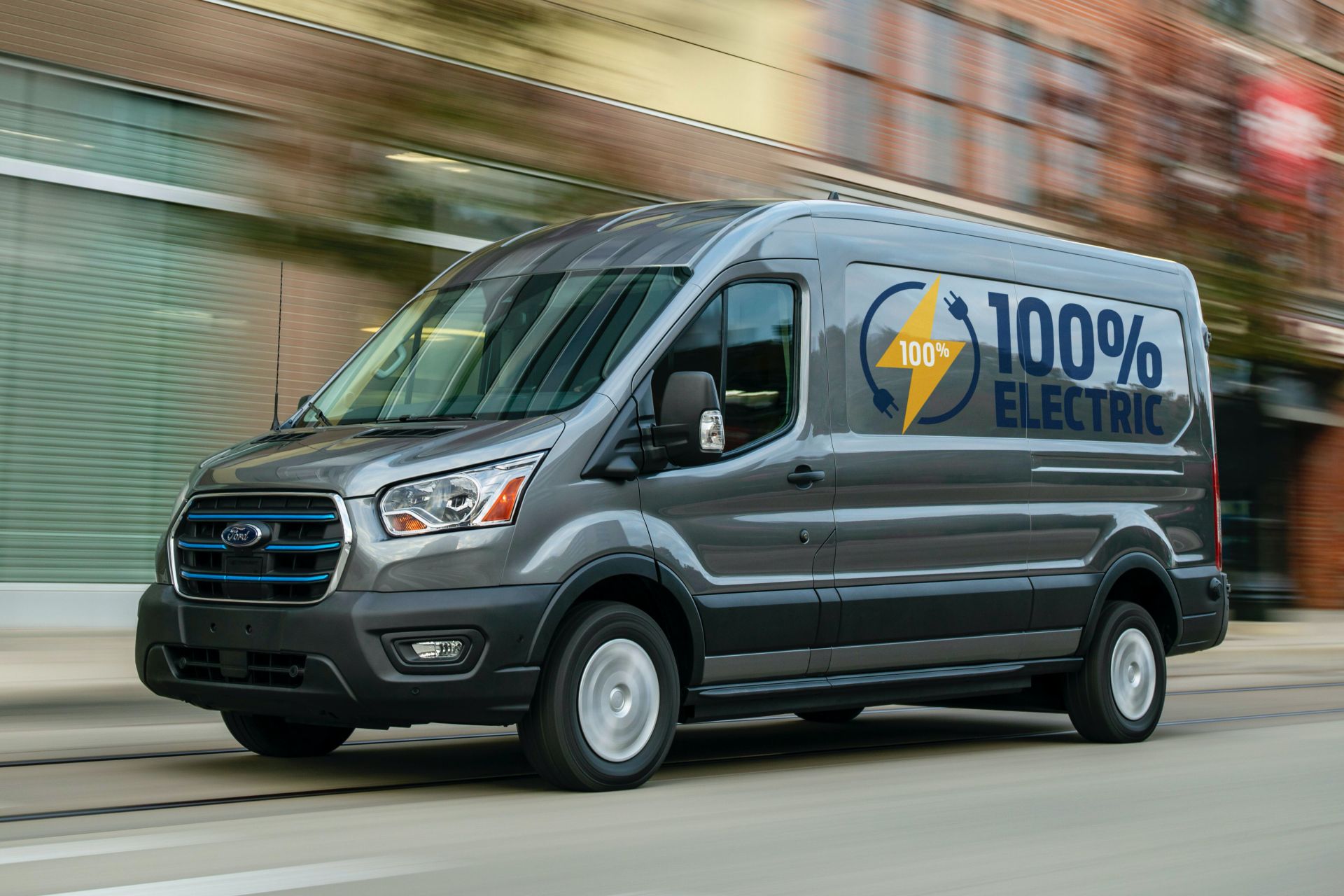Ford has unveiled the 2022 E-Transit, the all-electric version of the world’s best-selling cargo van.
Described as the first all-electric cargo van from a full-line automaker in North America, the E-Transit will offer a choice of eight configurations when its arrives in late 2021. Those will include three roof heights, three lengths, as well as chassis cab and cutaway models. All will feature a rear-wheel-drive all-electric drivetrain.
Read Also: Ford Already Increasing All-Electric F-150 Production Plans By 50 Per Cent
A 67 kWh battery located underneath the vehicle body will power a motor projected to make 198 kW (266 HP / 269 PS) of power and 317 lb-ft (429 Nm) of torque. In North America, the E-Transit will deliver an EPA-estimated range of 126 miles (202 km) in low-roof cargo van guise, while the WLTP-rated range for European models will be 350 km (217 miles). Ford will offer the electric van with a starting MSRP of under $45,000 for U.S. fleet customers, backed by an eight-year, 100,000-mile electric vehicle component warranty.
Same interior cargo dimensions and mounting points of the gas-powered model
It’s worth noting that the E-Transit offers the same interior cargo dimensions, providing up to 487.3 cubic feet (13.8 cubic meters) of cargo space inside the high-roof, extended-wheelbase variant. For E-Transit cargo vans in the U.S., Ford is targeting a maximum payload of 3,800 pounds (1,723 kg), and up to 4,290 pounds (1,946 kg) for cutaway versions. The E-Transit also retains the standard mounting points for continued integration with hundreds of upfitters and vehicle modifiers worldwide. As a result, all the racks, bins and accessories for the gas-powered Transit are compatible with the E-Transit.
Speaking of the gas-powered Transit, the battery-powered E-Transit is said to offer 40 percent lower scheduled maintenance costs over eight years/100,000 miles (161,000 km) compared to its ICE counterpart. Ford says this will allow companies to improve customer uptime and productivity by avoiding fill-ups – though it seems to conveniently leave aside the fact that the E-Transit will need recharging.
About that, the E-Transit features both AC and DC fast charging, offering a standard Ford Mobile Charger that can plug into a normal 120-volt outlet for slow and steady charging or into a 240-volt outlet for faster charging. The optional Ford Connected Charge Station offers the fastest home charging solution that can fully charge the battery in eight hours.
115 kW DC fast-charging option offers 45 miles of range in 15 minutes
Using a 115-plus-kilowatt DC fast charger, E-Transit cargo van low-roof models can achieve approximately 30 miles (48 km) of range in 10 minutes and approximately 45 miles (72 km) of range in 15 minutes. When plugged into a 240-volt outlet, E-Transit cargo van low-roof models achieve approximately 10 miles (16 km) per charging hour using the standard Ford Mobile Charger. Using the optional Ford Connected Charge Station brings the number up to approximately 15 miles (24 km) per charging hour.
Ford also offers the Pro Power Onboard option, which provides up to 2.4 kilowatts of power for North American customers to transform the E-Transit into a mobile generator to power tools and equipment on job sites and on the go – everything from belt sanders to circular saws.
Adding to the 2022 E-Transit’s appeal is Ford’s network of 1,800-plus global commercial vehicle dealers, including 645 commercial vehicle centers across the U.S. for easy sales and service. Importantly, about 90 percent of the dealers in the United States are electric vehicle-certified.
New SYNC 4 infotainment system with 12-inch touch screen as standard
When it comes to styling, the 2022 Ford E-Transit looks just like its gas-powered counterpart, except for the blue accents on the grille. It does bring new equipment, headlined by the SYNC 4 infotainment system with a standard 12-inch touch screen, enhanced voice recognition, cloud-enhanced navigation, standard 4G LTE modem, and over-the-air updates.
The Ford Co-Pilot360 safety suite includes additional standard technologies like Lane-Keeping System and Pre-Collision Assist with Automatic Emergency Braking, as well as available Intelligent Adaptive Cruise Control with Speed Sign Recognition, Intelligent Speed Assist, Blind Spot Information System with Blind Spot Assist, a 360-degree camera and Reverse Brake Assist.



